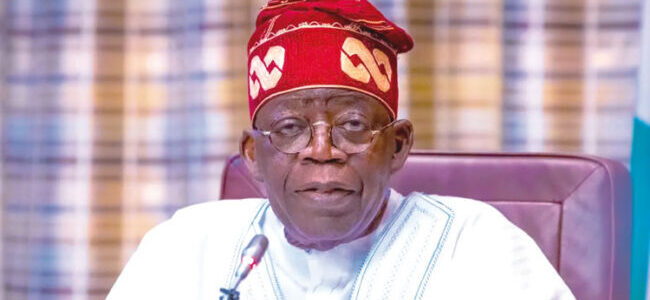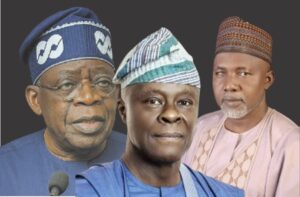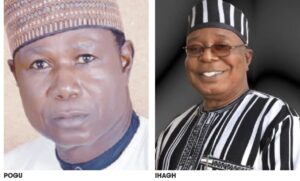
•Intervention well-intentioned, but won’t have lasting impact, can’t reduce poverty – Economists, others
• Cash transfer mere political gimmick – MBF, MUT
Economic and development experts have raised serious concerns over the federal government’s N330 billion cash transfer initiative to eight million vulnerable households, warning that the programme offers only temporary relief and does not address the root causes of poverty in the country.

President Bola Tinubu, in his Independence Day broadcast on October 1, announced that under the Social Investment Programme, N330 billion had been disbursed to eight million households, many of whom have received either one or two out of the three tranches of N25, 000 each. However, experts say the intervention, though well-intentioned, lacks the depth and sustainability needed to make a lasting economic impact in the face of current economic challenges.


Economists, development experts pick holes
Economic and finance expert, Dr Aliyu Ilias, said the approach does not tackle the core issues plaguing the economy and the lives of ordinary Nigerians.

“Basically, as an economist, we do not believe in hand-outs. Yes, it is an intervention approach, but when you examine the impact, it merely pushes more money into the system without addressing the root issues. If you give someone N25,000 for three months, they will simply use it for immediate consumption. And after those three months, what happens next? There is no lasting effect. I believe the government should focus more on making the cost of living easier for people, so they naturally have more disposable income. That would lead to better outcomes and allow people to afford essential needs more sustainably,” Ilias said.
He recalled earlier hand-outs to civil servants that have since ended without significant impact, saying the government should focus on addressing deeper economic problems.
“Even the civil servants, I recall, were given that support for six months or so. It has since elapsed. So I think the government should focus more on addressing the broader economic problems.
“The progress we are seeing in the macro economy should be able to translate to real improvements in people’s lives. But for me, these hand-outs cannot actually solve poverty. They are simply too temporary in nature.
“Perhaps if you also look at the amount, can it even buy half a bag of rice? These are the questions we must ask. And beyond food, people have to pay for transport. People have to pay rent. They have to pay school fees and cover other essential needs. These are the major problems we should be solving.
“If we can get it right with food, which currently takes over 50 per cent of people’s income, and bring the prices down, I think that would make a real difference.
“Even though the government has, through different means, said they want to crash food prices, I think more needs to be done. Because the reality is, even if prices are coming down, people don’t have the purchasing power. This disposable income is simply not enough.
“So I think the government should focus more on solving the real economic problems, not just giving hand-outs to people,” the expert added.
On his part, Professor of Energy Economics and the Director of the Centre for Petroleum, Energy Economics and Law (CPEEL), University of Ibadan, Adeola Adenikinju said while income transfers are necessary during economic shocks, concerns about implementation and data integrity must not be ignored.
According to him, “During periods of economic stress like we are experiencing now, especially after the removal of fuel subsidy, it is important to understand that such reforms have significant social impacts, particularly on the poor and vulnerable.
“Countries that have undertaken similar reforms usually implement programmes to cushion the impact and protect these vulnerable groups. Some of those programmes involve direct resource transfers, income support to the poor, because they are the most affected. And since they are already poor, you do not want them to sink deeper into poverty.
“So, income transfer or income support is typically a necessary part of that intervention.
Now, in the case of Nigeria, we face issues around data. Do we have reliable data on the poor? Is the data credible? Are people using this as an opportunity to siphon government funds? Some people argue that instead of giving out money, we should be investing in infrastructure, agriculture, or roads. And that is a valid debate.
“But from what I have heard, and I cannot say this is absolutely confirmed, with the support of the World Bank, a register of the poor and vulnerable has been developed across various states in Nigeria. And that is what the government is reportedly using. If that is true, then it provides a good foundation, but I still believe we need to do more. Because despite that effort, there are still so many people who are not benefiting from this support.
“There has to be a way to ensure proper monitoring, and I believe that is where the press comes in. Journalists should investigate the credibility of the register. Who is benefiting? Are they truly poor? What is the coverage? These are the questions we need to answer. The government may claim it has implemented the programme effectively, but we need independent monitoring and evaluation from the media, civil society organisations, and other watchdogs, to assess whether it is working as intended.
“Just like the IMF has said in other contexts, we need to expand social investment in Nigeria so that more people can benefit and we can begin to reduce the high poverty rate in the country.”
For Oluwananumi Dawodu, a Digital Development Officer, Glasgow Council for Voluntary Sector (GCVS), UK, President Tinubu’s social investment initiative, which includes eight million households receiving N330 billion, has its pros and cons from a technological standpoint.
“One positive aspect of this project is that it is taking action to assist the most disadvantaged Nigerians, which is especially important given the current economic climate.
“By transferring funds directly to those facing financial hardship, it provides a short-term respite that may assist families in meeting essential expenses. When so many people are having trouble making ends meet, this becomes even more crucial.”
Dawodu explained that in order to guarantee that the right individuals are receiving assistance without undue delays or corruption, “technology has the potential to greatly improve and open up the disbursement process. However, there are a number of difficulties associated with the programme. Even while it’s great that eight million families are getting help, there are still a lot of people who don’t have enough.”
He said that from a technological perspective, “the initiative might be bypassing an opportunity to reach even more marginalised individuals, particularly in impoverished or faraway places.
“It is more challenging to achieve maximum efficiency and inclusivity in the process without a reliable digital system. There is a great deal of potential for development; it’s like attempting to assist others while holding a single hand. It also looks like the programme is more about short-term respite than long-term improvement.
“Giving someone money today is helpful, but it won’t benefit them in the long run. People who don’t like it say that it’s really just a short-term remedy that doesn’t get to the root of the problem. From a technological point of view, it would have been much better to spend the money to pay for projects that create long-term growth potential.”
He expressed the view that what the government should have done is to consider investing in electronic infrastructure that gives people the tools they need to create their own enterprises or work from home or digital skill training.
“That kind of investment,” he said, “would provide people with a chance to make money over the long term instead of just getting a one-time payment. The programme could have used technology to come up with solutions that last.
“For instance, why not utilise some of the money to pay for digital education and training? What if Nigerians could take online classes that taught them tech skills?
This would open up career prospects in the digital realm or even better, if the government put money into systems that linked people to job markets and remote jobs.”
According to the digital development expert, this form of intervention would not only aid individuals right away, but would also help them become more independent, which would lead to a better future.
“In the end, the social investment programme does aid some people, which is a good thing. But if the programme had concentrated on technology-driven solutions, the long-term effects could have been bigger.”
He added that “It’s not enough to just give folks money for now; you also need to provide them with chances to do well in the long run. Putting money into digital education and starting your own business could have altered everything, not just for people but for the economy as a whole.”
Similarly, Jide Ojo, an economic analyst, argued that the government should blend both the social investment initiative with the building of infrastructure.
Ojo pointed out that the N25,000 distributed to vulnerable communities is not enough given the devalued currency.
He cited the high cost of accommodation, electricity tariffs, foodstuff and water especially for rural dwellers, as major factors to be considered.
He said: “You can still take care of the vulnerable groups while building infrastructure. I heard the president in his national broadcast on October 1. He said about N330 billion had been spent on eight million households.
“If you look at the N25,000, what can it buy for you? And that household means father, mother and maybe four children.
“You may look at the N330 billion as if it is big. But with the devalued currency it is insignificant because I can’t imagine what a family will do with N25,000 for a month.
“Can that pay transport fare, accommodation and all the services like electricity, and telecommunications tariffs? People should be very wary that they may be comfortable but we should consider people in the rural areas who will appreciate that N25,000 because it is an additional income to them.”
Another development analyst, Ekene Peter, said the sharing of stipends was not the best way to go. He insisted that the government should use the money to build social infrastructure to attract investors.
“The sharing of money to vulnerable groups or individuals has not helped us as a nation.
“The Ministry of Humanitarian Affairs and Poverty Reduction is groping. There is no positive impact on the distribution of money to indigent people.
“How many countries do you see giving out money to poor people? They invest their funds in public infrastructure to lure investors that will create jobs for the masses.
“I believe the country can toe that line of honesty. Who monitored the sharing formula? I do not think journalists like you were carried along. Let the government publish the names of the beneficiaries for Nigerians to see.
“If you ask me, it is just another political gimmick of the government of the day. We can do better. The social investment scheme is a good initiative but the handlers are not sincere,” Peter said.
Cash transfer a political gimmick – MBF, MUT
President of the Middle Belt Forum (MBF), Dr. Bitrus Pogu, and President General Mzough U Tiv (MUT), Worldwide, Chief Iorbee Ihagh, described the N25, 000 cash transfer as a mare political gimmick.
Pogu noted that for the man in the rural area, who doesn’t look at the economic implications, if the money actually gets to him, it might help him a little bit.
“Rather than provide fish, I think it is better to teach Nigerians how to fish so that they can have food on their tables. Let the economy improve, and then the poor people who they are targeting can provide food for themselves.
“Let there be security, and the poor in the village will not need any government support to put food on the table. These policies have continued since the time of the late President Buhari, but it only serves political purposes, rather than have any impact on people’s economy or improving the economy of this country.
“So, let them save those monies and ensure that there is security, and there will be enough food on the table and our economy will grow,” Pogu advised.
The MUT president described the claims as political, saying he can’t identify anyone who has benefitted from the money.
“I do not know anyone who has collected that money and my opinion is that it is politics. Nobody has told me he or she has collected that and you cannot go asking about the people who have gotten it because you won’t know who has gotten and who hasn’t and there is no way you can argue or deny what they’re saying.
“So you take it that he is helping Nigerians because of the poverty level, the hunger. You will just be forced to agree. But on my own, I think it is politics.”
Ihagh argued that even if people have been collecting the cash transfer, there would not be any impact.
According to him: “What the president needs to do is cause the prices of food and goods to go down by reducing the fuel price, because if he does that, prices of other things will drop. The cost of transporting food items from the villages to the town is very expensive.
“In Makurdi town here, we were picking motorcycles for N50 but now from one place to another, it is between N800 and N1,000. A pack of five shaving sticks was N250, now it’s over N3, 000 and that is how prices of other items are increasing.
“The business people are not losing because if they buy something at N1,000, or N2,000 they will sell above that price. It is the buyers that are losing. How much are workers being paid? The politicians are taking all the money. The Nigerian legislators are the highest paid in the world. They still give them money for constituency projects and nobody sees what they are doing.
“They use one third of the money and buy 10 bags of rice and give only to their supporters. So in an economy where fuel is selling for N1, 000 and above, N25, 000 would have no impact.
“The politician wants us to continue to suffer so they will continue winning and writing whatever numbers they want and you can’t protest. They know that if we get empowered, on our own we can vote the way we want, but when we are suffering they get us to vote according to their will.
“Nigeria has a lot of money now. The local governments that were collecting just N50 million are now collecting over N800 million, but what are they doing with it, nothing. They are not even digging a well, no construction of drainages at the local government headquarters. Nothing is moving; we are rather retrogressing.
“Nigeria is not moving. Nigeria is pregnant and she can deliver any time. In Nigeria, we fear too much. In other countries, like Kenya, when they increased the price of bread by one Kobo, everybody went on the streets. Here we don’t know our rights and that is why they are riding us,” Ihagh said.
Credit: The Sun
